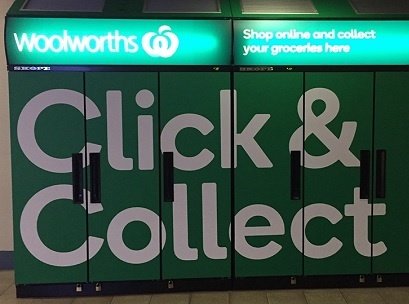
Australian retailers are leaving money on the table by not offering click and collect.
That is according to Justin Dery, APAC CEO of Doddle, a UK-based provider of click-and-collect technology, which launched in Australia on Tuesday.
“While [click and collect] is growing, there are still tremendous opportunities for retailers to get this right,” Dery told Inside Retail.
Forty-two per cent of Australian retailers said they offered click and collect in 2017, according to KPMG research. This was up from 24 per cent in 2015.
“Australia’s e-commerce market is strong and growing – there was 15 per cent revenue growth this year – and there’s an increasing trend of consumers demanding free and fast delivery,” Dery said.
Still, he believes Australia is about five years behind more advanced markets like the UK and US when it comes to the uptake of click and collect and other omnichannel services, such as buy online, return in-store.
“We’re a bit behind…we take our lead from the UK with trends,” he said.
The biggest barrier to launching click and collect is competition for resources and priorities internally, according to Dery.
Many businesses also struggle to gain a real-time view of their inventory across their distribution centres and stores, which is essential to ensure they don’t sell customers an item that isn’t in stock in their nearest store.
Even major retailers, such as Bunnings and Platypus, have only recently managed to launch click-and-collect offerings. But there are several compelling reasons why businesses need to catch up.
According to Dery, 58 per cent of customers at the retailers Doddle works with – including Marks & Spencer and Missguided – make an additional purchase when collecting an online order in-store.
“It only takes them spending a small amount to increase the basket size to move the needle,” he said.
For many customers, click and collect is also a more convenient delivery method than home delivery.
But that doesn’t mean click and collect is always as convenient as it should be. Some retailers don’t have clear signage in their stores about where customers should pick up online orders, leaving shoppers unsure whether they should queue at the counter, or somewhere else.
Others ‘hide’ the click-and-collect area at the back of the store, hoping customers will be more likely to add something to their order if they’re have to walk by every product. But that is no longer acceptable, according to Dery, especially since many click-and-collect users opt for the service because they’re short on time.
“We’re talking to the retailers we work with about making it as quick and easy as possible, making sure it’s signposted, putting it as close as they can to the front of the store,” he said.
“Giving customers exactly what they want will encourage them to be more loyal and drive income.”
The same goes for returns. The idea that you should make it difficult for customers to return items to protect profitability is an outmoded way of thinking, he said.
“I think it’s well established in the UK that returns should be a driver of customer loyalty. It’s been a challenge for us to change those perceptions locally,” Dery said.






